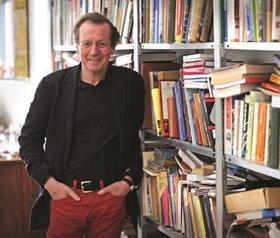Architect George Ferguson has pledged to follow the spirit of engineer Isambard Kingdom Brunel after being elected mayor of Bristol

Ferguson - who was RIBA president between 2003 and 2005 and practices at the city’s Ferguson Mann Architects – began his three-and-a-half year term of office on Monday after his surprise election victory last Friday.
Standing as an independent, he received 37,353 votes to second-placed Labour candidate Marvin Rees’s 31,259 in an election with a 28% turnout.
Delivering a speech at his swearing in ceremony on Monday, Ferguson said he had chosen to hold it at Brunel’s Passenger Shed at Bristol Temple Meads station because he wanted to take inspiration from the Victorian engineer.
One of Ferguson’s election pledges is to seek World Heritage status for Brunel’s famous Clifton suspension bridge over the city’s Avon Gorge.
In a 40 minute speech, which was greeted with a standing ovation by the audience, the architect also repeated a classical Athenian citizens’ oath: “I shall not leave this city any less but rather greater than I found it.”
During the campaign, Ferguson pledged to build more affordable homes in the city and prioritise the redevelopment of derelict brownfield sites in preference to the green belt.
He said he would seek investment into Bristol’s creative and green industries, engineering and specialist manufacturing and make it an “exemplar in low carbon technology and clean renewable energy”.
Ferguson also said he wanted to make the city centre more accessible and restore areas damaged in Second World War bombing such as the old High Street.
However, he faces a tough task in forming a cross-party cabinet and dealing with an estimated public sector deficit in Bristol of £32 million.
Ferguson first came to the city in 1965 as a student at Bristol University and lives in the Tobacco Factory, a mixed-use regeneration project that he himself pioneered at the city’s old Imperial Tobacco site.


























No comments yet